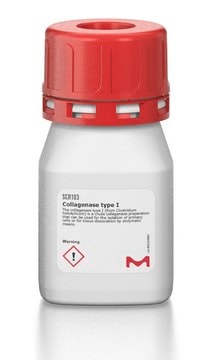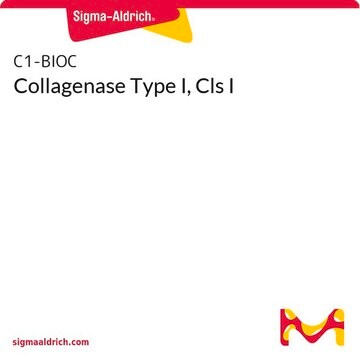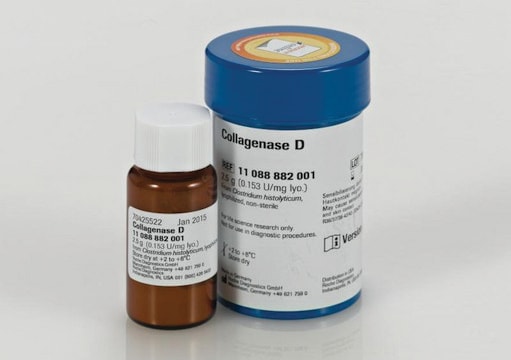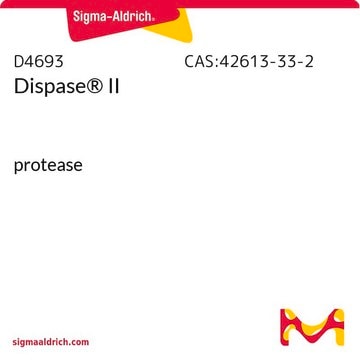추천 제품
일반 설명
Collagenase Type II (Cls II) is one of the main tissue dissociation enzymes produced by Clostridium histolyticum. It aids to digest the smaller collagen fragments produced by Type I collagenase. Collagenases, a member of the matrix metalloproteinase (MMPs) family, digests collagen in the extracellular matrix (ECM). Collagens are triple helix structural proteins comprising three collagen polypeptides with high tensile strength.
This product is identical to Biochrom GmbH part numbers C2-22 and C2-28. Enzyme blending from collagenase, clostripain, with tryptic and proteolytic activities from Clostridium histolyticum. This preparation shows a high clostripain activity with the tryptic activity close to type I. Suitable for liver, bone, thyroid, heart, and salivary gland tissue. Specific activity is 125 to 250 Mandl units per milligram of powdered substance.
애플리케이션
Collagenase Type II (Cls II) has been used:
- as a component of Roswell park memorial Institute (RPMI)-1640 media to digest hepatic tissues
- to perfuse murine heart for the isolation of epicardial stromal cells (EpiSC)
- to digest collagenase and inject it into the intrarenal aorta abdominalis to perfuse the kidneys
가장 최신 버전 중 하나를 선택하세요:
Tissue dissociation enzymes for adipose stromal vascular fraction cell isolation: a review
Lockhart RA, et al.
Journal of stem cell research & therapy (2015)
Lukas Peintner et al.
Autophagy, 17(9), 2384-2400 (2020-09-25)
Mutations in the PKD1 gene result in autosomal dominant polycystic kidney disease (ADPKD), the most common monogenetic cause of end-stage renal disease (ESRD) in humans. Previous reports suggested that PKD1, together with PKD2/polycystin-2, may function as a receptor-cation channel complex
자사의 과학자팀은 생명 과학, 재료 과학, 화학 합성, 크로마토그래피, 분석 및 기타 많은 영역을 포함한 모든 과학 분야에 경험이 있습니다..
고객지원팀으로 연락바랍니다.





